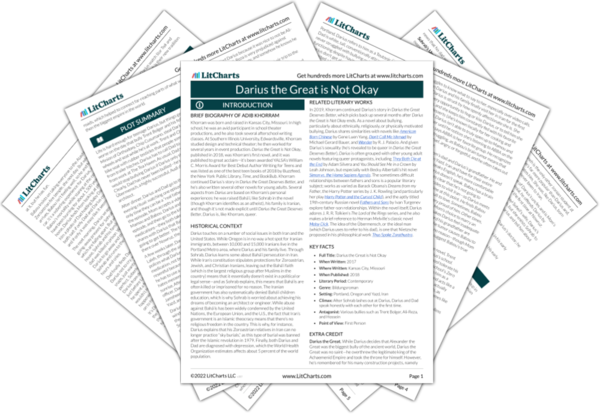AI ToolsNew
Tools to make learning and teaching easier
|
Previous
The History of American-Iranian Relations
|
Darius the Great Is Not Okay: A Holodeck Vision Summary & Analysis |
Next
Soccer/Non-American Football
|


Upgrade to unlock the analysis and theme tracking for all of Darius the Great Is Not OkayDarius the Great Is Not Okay!
Get LitCharts A+